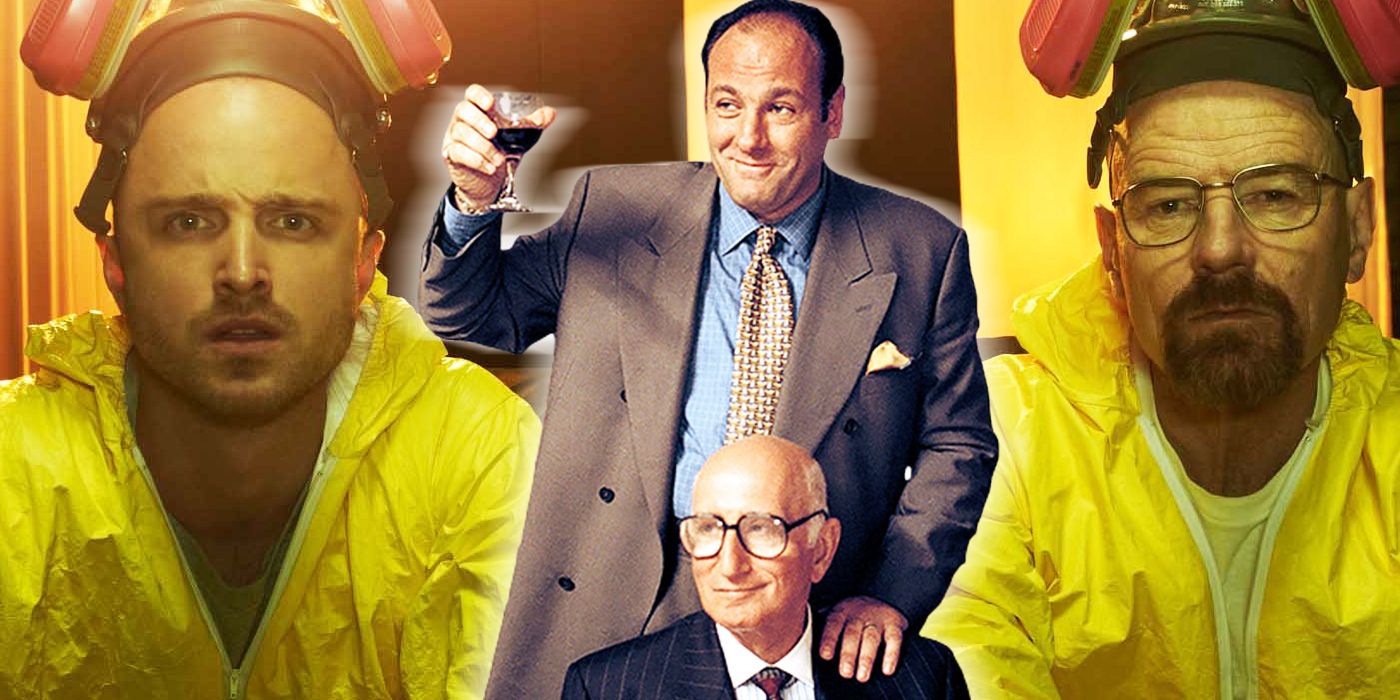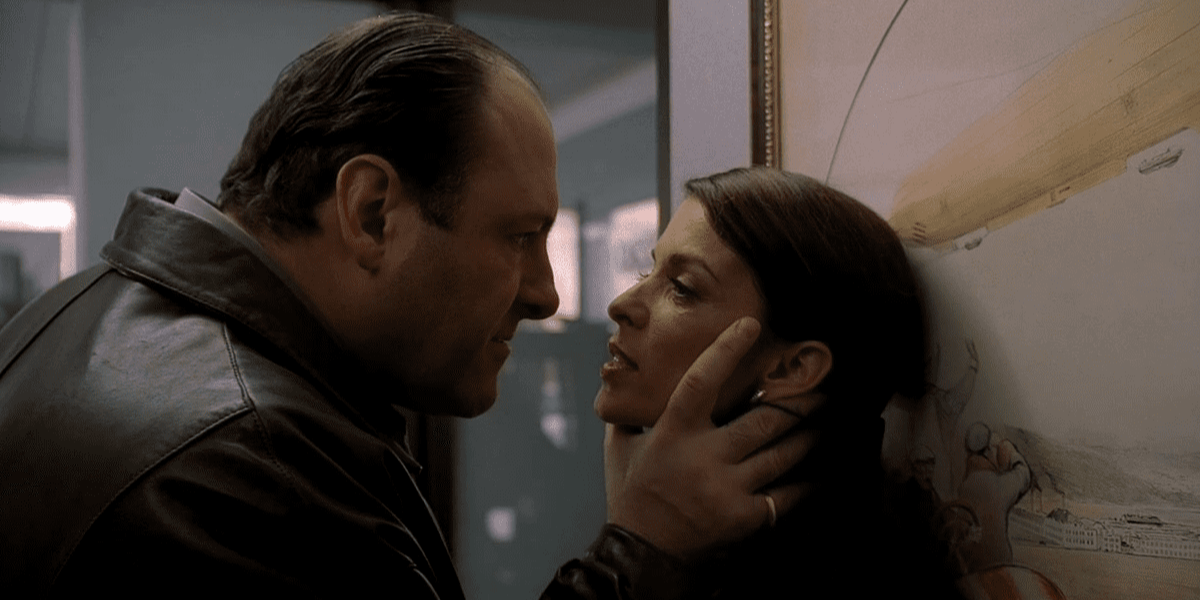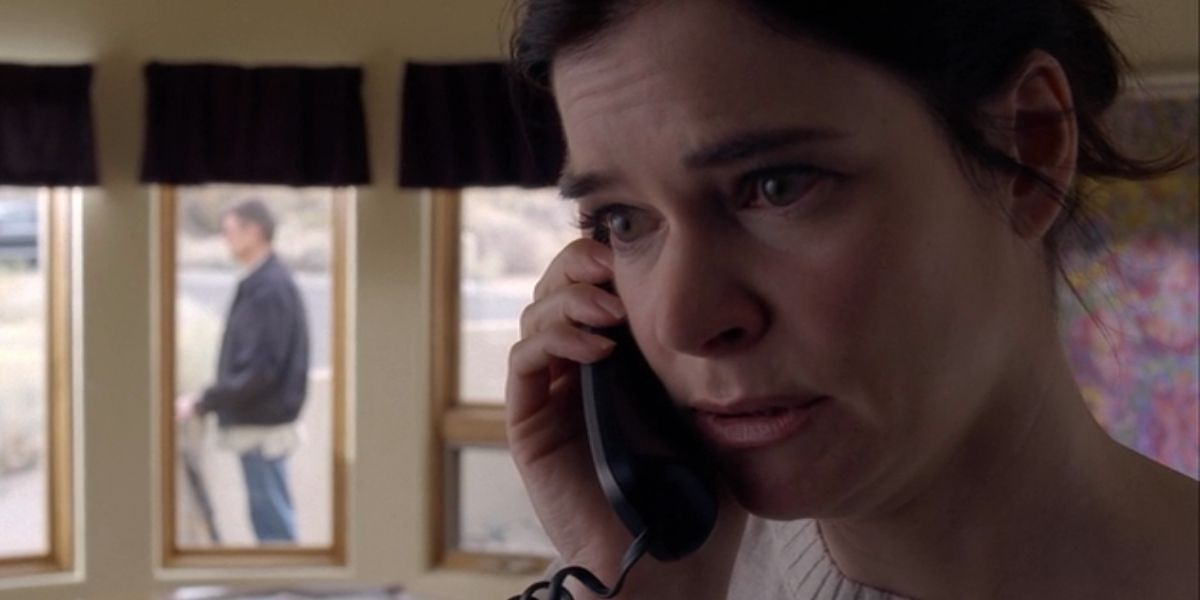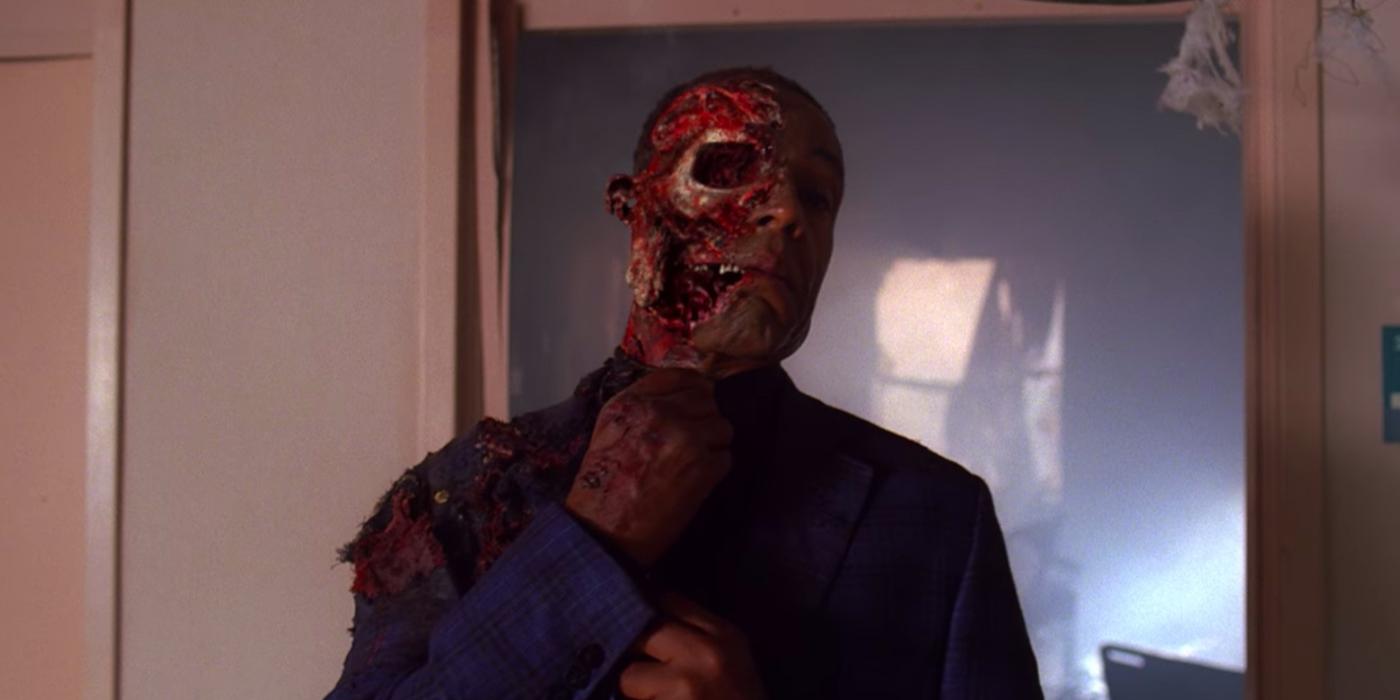Breaking Bad is a firm contender for the greatest television show in history. The criminal exploits of its central character captivated audiences with a magnetic lead performance, potent symbolism and top shelf writing from start to finish. In fact, it's so good that it's hard to believe that The Sopranos does all of the same things, only better. AMC's Breaking Bad absolutely deserves credit, but in any point-by-point comparison the superiority of HBO's The Sopranos is clearer.
Walter White Was a Great Anti-hero, But Tony Soprano Won Audiences Over
Bryan Cranston's performance as Breaking Bad's Walter White is among the cream of the crop. Previously known for his comedic turns in shows like Malcolm in the Middle, Cranston conjured a perfect charismatic charm to endear viewers to the family-man chemistry teacher. As he descended into a criminal mastermind, that same charisma kept fans hooked. The genius trick to Breaking Bad was to pull viewers into the world of a sympathetic man before his descent into evil. That sympathy is far harder to earn when the main character is morally dubious from the outset.
Some characters don't need to break bad when the criminal life is all they ever know, as seen with James Gandolfini's performance as Tony Soprano. Rich with psychological texture and with palpable inner conflict, even as he constantly tried to maintain a façade of strength, in a lot of ways Gandolfini had to work harder to earn audiences to his side. Mob bosses don't typically elicit much sympathy, but the shades of vulnerability Gandolfini imbued in the character made it impossible not to feel sorry for Tony even at his worst moments.
The Sopranos' Supporting Characters Had Stand Out Subplots
The main character of a series doesn't carry the story alone. Joined by an ensemble cast to surround Tony Soprano, both the mafioso's family and his "family" supported the story in an interconnecting web that created this beautifully detailed depiction of a certain slice of New Jersey filled with shady but endearing characters. Tony's relationship to the cast informed his character, as well as theirs, and The Sopranos never felt like it's treading water when it turned its focus away from the protagonist.
In that regard, Breaking Bad was not quite so perfect. Even with a much smaller cast, many of the characters around Walt and Jesse did not feel richly complex or psychologically detailed. They seemed to disappear when not directly engaged with the primary cast's orbit. There were even times the subplots meant to flesh them out, like Marie's early-series kleptomania, just dropped.
The Sopranos Maintained Realism While Breaking Bad Didn't
What first made prestige format shows like these exceptional among other series was their unflinching realism, even in the face of the unsettling. Happy endings did not magically come together, conflicts between characters weren't settled in 22 minutes, and crime dramas, such as these, understood that morality was more complicated than just good cops versus bad robbers. Yet over the course of its five seasons, Breaking Bad lost ahold of that realism.
After growing increasingly sensational and mythic in its proportion, a show that started with a relatable everyman ended with that same man murdering a gang of Nazis with a robot. By contrast, The Sopranos never lost its focus on real-world parallels and believable characterizations. Throughout six seasons, it found its drama in reality itself, and it seemed just as interested in the inner-workings of everyday people by the end as it did at the start. Breaking Bad's focus was on the grander scale of good versus evil, but The Sopranos said just as much on the same subject by grounding its questions in the tangible and relatable.
The Sopranos Always Came Back to Character Psychology
The difference in realism could likely be chalked up to a difference in focus, as The Sopranos always concerned itself first and foremost with the psychology of its characters. The core setup to the show involved a mob boss undergoing counseling to treat severe panic attacks induced by a lifetime of psychological stress. In examining what makes Tony and the other characters tick, The Sopranos inspired self-reflection in its viewers while engaging them further with the show's reality.
By comparison, it became harder to relate to or care about the characters of Breaking Bad. Walt himself became a maniacal super villain, Jesse progressed through one titanic emotional crisis after the next, and most everybody else fell into a simplistic good versus evil binary that lacked much of The Sopranos' nuance and empathy. In order to care about the plot, an audience needed to understand the motivation, and The Sopranos concerned itself first and foremost with motivation from start to finish.
The Sopranos and Breaking Bad Both Emphasized Symbolism
What many fans loved most about Breaking Bad was the style, motifs and symbolism that distinctly carved out the series' place in TV history. Color schemes or seemingly incidental objects grew in significance as the series progressed. The teddy bear from the Season 2 plane crash, for instance, set a tone and mood as the camera frequently ruminated on the object. Its purpose or meaning was never quite clear, and that was part of what makes it so fascinating to return to so frequently.
Yet The Sopranos' deft understanding of psychology made it unparalleled in implementing symbolism and style to even greater effect. Dream sequences and hallucinations rife with symbolism took up an unusual amount of narrative space, but their impact on the characters they were tied to proved far more potent than merely providing aesthetic value. When Tony learned of a connection between a family of ducks and his own panic attacks, for instance, the revelation proved far more consequential than just idle speculation. There was plenty of style in both shows, but when comparing them, The Sopranos was the one with far more substance.






